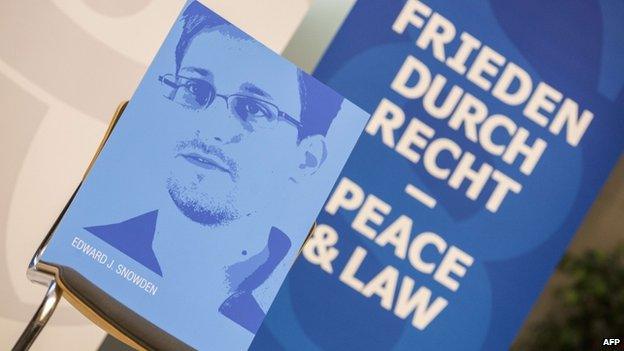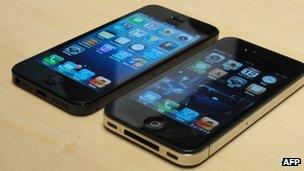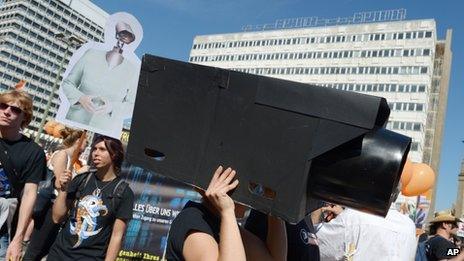US NSA and UK GCHQ 'can spy on smartphones'
- Published

German privacy campaigners have welcomed Edward Snowden's disclosures about NSA surveillance
The US National Security Agency (NSA) is reported have cracked the security codes which protect data on iPhones, Blackberries and Android devices.
German news weekly Der Spiegel says documents suggest the NSA and the British GCHQ made joint efforts to gather intelligence.
Teams looked at each phone to crack its privacy codes, Der Spiegel said.
Saturday saw thousands of demonstrators in Berlin demand that the NSA stop monitoring internet users.

Apple's iPhone privacy protection codes are reported to have been compromised
Codes unlocked
The documents Spiegel has seen do not show whether or not there has been mass surveillance of phone use.
Once the intelligence teams had unlocked the codes, agencies could read a user's contacts and lists of who had been called.
The BBC's Steve Evans in Berlin says the reports do seem to indicate that the British and American security agencies have the ability to read private communications beyond what might have previously been thought possible - or desirable by those who fear the intrusion of the state.
The magazine did not explain how it had obtained the documents.

Protesters in Berlin demanded the NSA "stop watching us"
But one of the authors of the article, Laura Poitras, is an American filmmaker with close contacts to the NSA whistle-blower Edward Snowden.
'Champagne'
According to the documents seen by Der Spiegel, the Canadian manufacturer of Blackberry phones began using a new method to compress the data in May 2009.
Intelligence agents were unable to access some information on BlackBerry phones for about a year afterwards, the Associated Press news agency said.
Der Spiegel's article said that GCHQ then cracked the problem, too - and analysts celebrated their achievement with the word "Champagne".
A stream of recent revelations about international data surveillance has ignited a heated debate in Germany about the country's co-operation with the United States in intelligence matters.